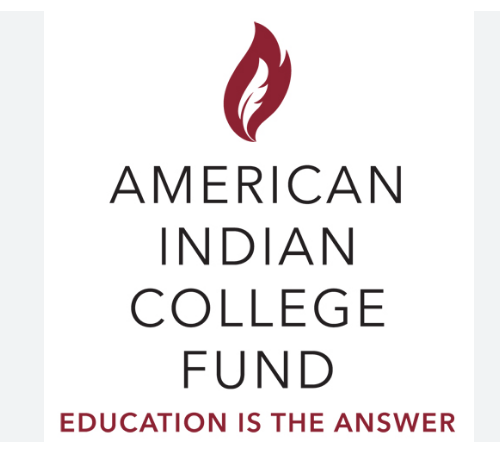The American Indian College Fund (College Fund) has received a $38,775,000 grant from the Lilly Endowment Inc.to support efforts that strengthen tribal colleges and universities and improve the educational attainment of American Indian and Alaska Native students.

The grant is funding “Culture at the Heart: An Indigenous Approach to Enrollment and Retention,” a program to be implemented over five years to increase American Indian and Alaska Native student enrollment, retention, and graduation rates at 25 tribal colleges and universities (TCUs) serving Native communities.
Native American students will receive the critical and culturally based skills and experiences they need to graduate and serve their communities in the fields of health care, environmental science, business, law, education, and more.
The College Fund’s mission is to provide American Indian and Alaska Native (AIAN) students with scholarships and TCUs, located on or near Indian reservations, with the financial and program support they need.
“Tribal colleges and universities provide education that is woven with Tribal knowledge and the cultures of the students and communities they serve. Lilly Endowment supports transformative community-based work and, as a long-time ally of tribal higher education, recognizes the alignment of their mission with ours,” College Fund President and CEO Cheryl Crazy Bull said, “We are deeply grateful.”
Although the importance of student scholarships has been well established, the College Fund has long understood that scholarships are not enough to create equitable access to higher education.
Today 15.4 percent of AIAN people aged 25 and older in the United States have achieved a bachelor’s degree or higher—less than half the national average—according to the U.S. Census Bureau.
“Culture at the Heart: An Indigenous Approach to Enrollment and Retention” will enable the College Fund to create a comprehensive and integrated system of student and institutional support that is critical to AIAN students considering, preparing for, entering, and graduating from college.
The program’s foundation is deeply rooted in Tribal cultures and values to strategically address the ways AIAN students attending TCUs experience admissions, enrollment, student support services, coaching, academic planning, and career development. By taking this culturally based approach to enrollment and retention, participating TCUs can scale both individual and systemic solutions for student success, while mapping their own processes, goals, and implementation plans according to the Tribal cultures and values in the communities they serve.
Lilly Endowment’s grant is the largest gift the College Fund has received in its 33-year history.
Founded in 1989 with partial start-up funding from Lilly Endowment, the College Fund began as an organization dedicated to raising college scholarship funds for AIAN students and to promote national awareness of TCUs. Since then, Lilly Endowment has made several grants to the College Fund to support capital needs of TCUs and a variety of leadership and capacity-building initiatives.
“American Indian College Fund is an important supporter of, and advocate for, tens of thousands of AIAN students around the country, many of whom attend TCUs,” Ted Maple, Lilly Endowment’s vice president for education, said. “We hope that this grant to the College Fund will enable TCUs to help even more AIAN students thrive, build meaningful careers, and become leaders in their communities.”
More Stories Like This
Bard College Center for Indigenous Studies (CfIS) Hosts Annual Symposium With Keynote Speaker Miranda Belarde-Lewis on March 9–10American Indian College Fund Announces Spring 2026 Faculty Fellow Cohort
Navajo Nation Signs $19 Million Diné Higher Education Grant Fund Act into Law
Dr. Shelly C. Lowe to Be Inaugurated as IAIA President March 26–27
Tlingit Language Courses Expand for Students to Learn With Families At-Home
Help us defend tribal sovereignty.
At Native News Online, our mission is rooted in telling the stories that strengthen sovereignty and uplift Indigenous voices — not just at year’s end, but every single day.
Because of your generosity last year, we were able to keep our reporters on the ground in tribal communities, at national gatherings and in the halls of Congress — covering the issues that matter most to Indian Country: sovereignty, culture, education, health and economic opportunity.
That support sustained us through a tough year in 2025. Now, as we look to the year ahead, we need your help right now to ensure warrior journalism remains strong — reporting that defends tribal sovereignty, amplifies Native truth, and holds power accountable.
 The stakes couldn't be higher. Your support keeps Native voices heard, Native stories told and Native sovereignty defended.
The stakes couldn't be higher. Your support keeps Native voices heard, Native stories told and Native sovereignty defended.
Stand with Warrior Journalism today.
Levi Rickert (Potawatomi), Editor & Publisher


